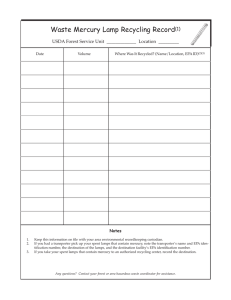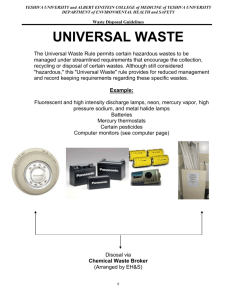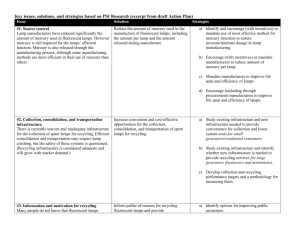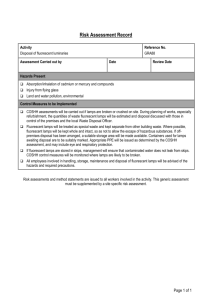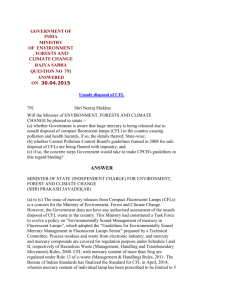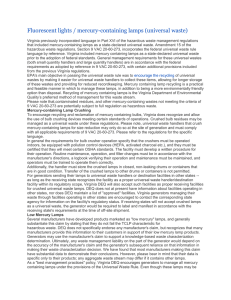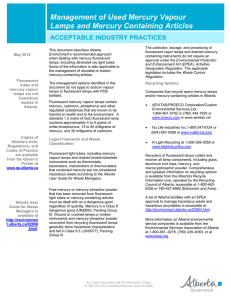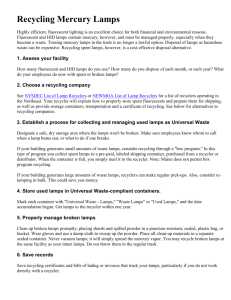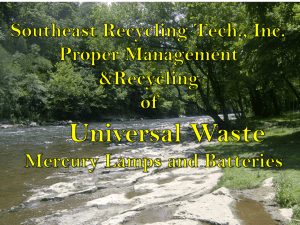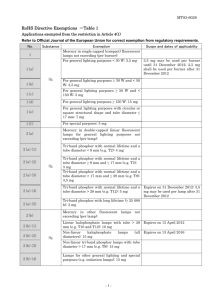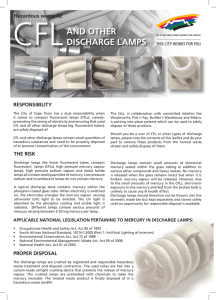Draft Press Release - Product Stewardship Institute
advertisement
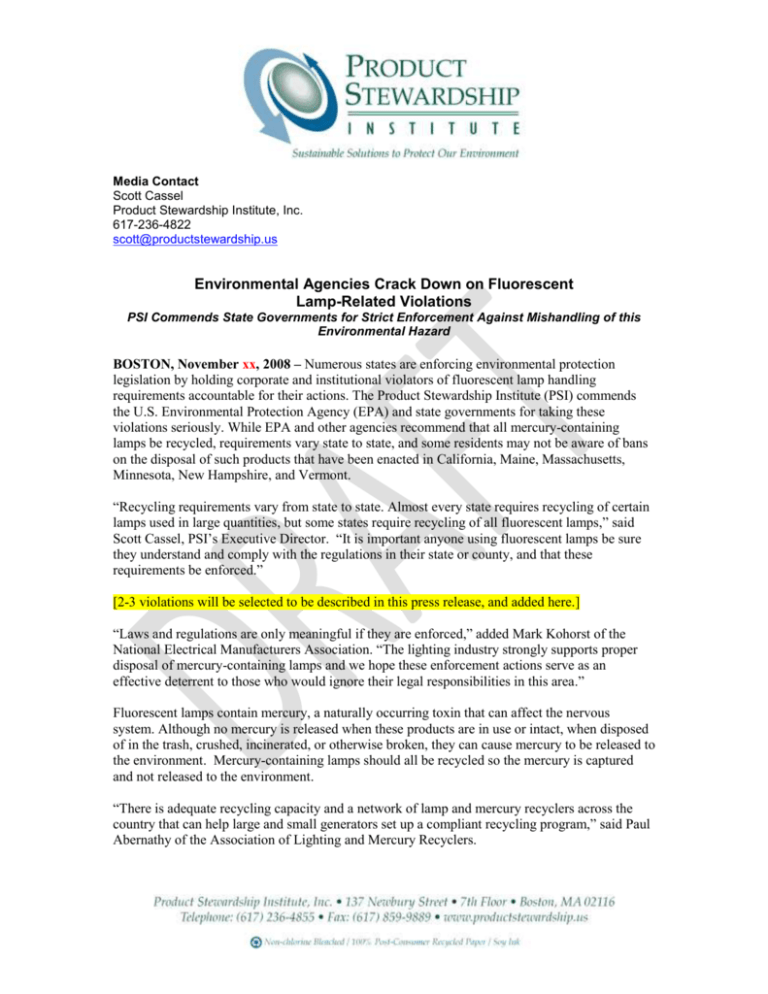
Media Contact Scott Cassel Product Stewardship Institute, Inc. 617-236-4822 scott@productstewardship.us Environmental Agencies Crack Down on Fluorescent Lamp-Related Violations PSI Commends State Governments for Strict Enforcement Against Mishandling of this Environmental Hazard BOSTON, November xx, 2008 – Numerous states are enforcing environmental protection legislation by holding corporate and institutional violators of fluorescent lamp handling requirements accountable for their actions. The Product Stewardship Institute (PSI) commends the U.S. Environmental Protection Agency (EPA) and state governments for taking these violations seriously. While EPA and other agencies recommend that all mercury-containing lamps be recycled, requirements vary state to state, and some residents may not be aware of bans on the disposal of such products that have been enacted in California, Maine, Massachusetts, Minnesota, New Hampshire, and Vermont. “Recycling requirements vary from state to state. Almost every state requires recycling of certain lamps used in large quantities, but some states require recycling of all fluorescent lamps,” said Scott Cassel, PSI’s Executive Director. “It is important anyone using fluorescent lamps be sure they understand and comply with the regulations in their state or county, and that these requirements be enforced.” [2-3 violations will be selected to be described in this press release, and added here.] “Laws and regulations are only meaningful if they are enforced,” added Mark Kohorst of the National Electrical Manufacturers Association. “The lighting industry strongly supports proper disposal of mercury-containing lamps and we hope these enforcement actions serve as an effective deterrent to those who would ignore their legal responsibilities in this area.” Fluorescent lamps contain mercury, a naturally occurring toxin that can affect the nervous system. Although no mercury is released when these products are in use or intact, when disposed of in the trash, crushed, incinerated, or otherwise broken, they can cause mercury to be released to the environment. Mercury-containing lamps should all be recycled so the mercury is captured and not released to the environment. “There is adequate recycling capacity and a network of lamp and mercury recyclers across the country that can help large and small generators set up a compliant recycling program,” said Paul Abernathy of the Association of Lighting and Mercury Recyclers. The use of fluorescent lamps has exploded in the last few years with rising energy costs driving consumers to purchase the energy efficient light bulb. These lamps not only use less energy than traditional incandescent bulbs but also last up to 13 times longer. Because they require less energy to produce light, fluorescent lamp use significantly reduces the amount of greenhouse gas and other emissions from power plants. More than 250 million fluorescent bulbs were sold in the United States in 2007 but it is estimated that only 2% of them are recycled. PSI is running a national, multi-stakeholder dialogue to develop and implement strategies to promote the use of energy efficient lighting while eliminating or reducing the amount of mercury and other toxins entering the environment during the lifecycle of fluorescent lamps. To find a lamp recycler near you, please see the Association for Lighting and Mercury Recyclers at http://almr.org/map.html. For information on the applicable regulations in your state, see: http://www.almr.org/statebystate.html. (Note that some local jurisdictions have their own requirements as well.) Consumers can find drop-off sites for used lamps at http:www.earth911.org. The Product Stewardship Institute (PSI) is a national environmental institute with membership from 45 states, 60 local government agencies, and more than 35 businesses, environmental groups, and other organizations that establishes cooperative agreements to reduce the health and environmental impacts from consumer products. For more information, please see: www.productstewardship.us. # # #

